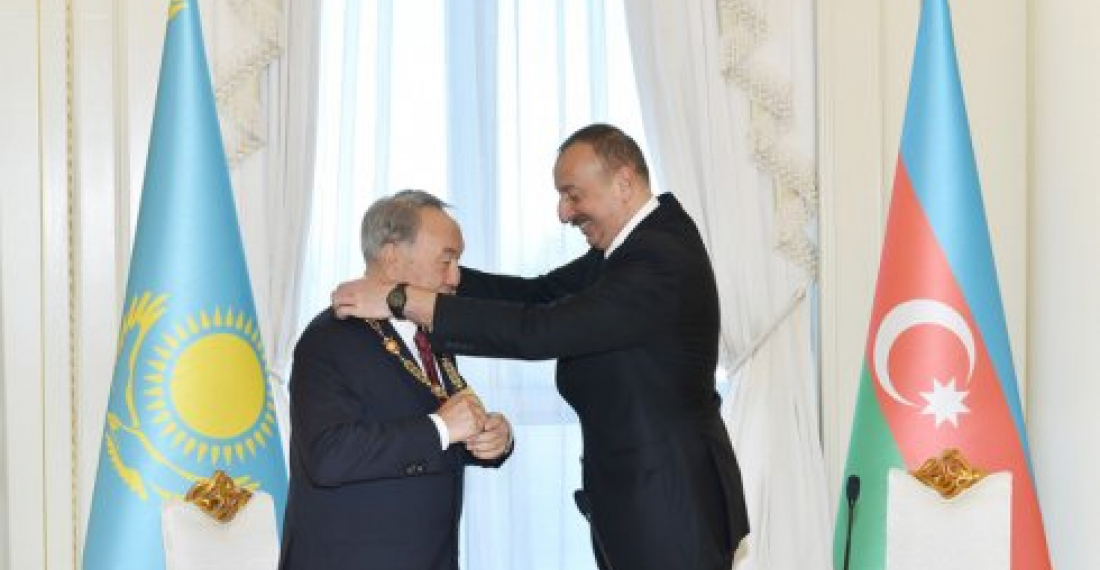Азербайджан и Казахстан договорились о расширении связей между ними и увеличении торговли до одного миллиарда долларов в год. Об этом было заявлено во время короткого визита в Баку президента Казахстана, Нурсултана Назарбаева, который завершился в понедельник (3 апреля). В ходе визита стороны подписали ряд соглашений и приняли совместное заявление двух глав государств.
В конце визита президент Ильхам Алиев наградил президента Назарбаева Орденом Гейдара Алиева.
В ходе брифинга для прессы президент сказал, что сотрудничество в области транспорта и логистики на Каспийском море является важным, актуальным вопросом.
"Казахстан построил железную дорогу протяженностью 2,000км от китайской границы до Каспийского моря и автомагистрали Западная Европа - Западный Китай. Проекты оказались весьма выгодными. Сейчас мы обсуждаем возможность доставки товара из Китая в Европу через Кавказ и Каспийское море", - цитирует казахстанского лидера газета «Астана Таймс». Назарбаев сказал, что обе страны должны работать над увеличением объема торговли до 1 млрд. долларов в год.
В ходе пресс-брифинга, президент Азербайджана Ильхам Алиев поблагодарил Казахстан за принципиальную позицию по карабахской проблеме и сказал, что это нашло свое отражение в тексте совместного заявления глав государств двух стран, опубликованного после визита.
источник: commonspace.eu по материалам агентств
фото: Президент Азербайджана Ильхам Алиев Орден Гейдара Алиева президенту Казахстана Нурсултану Назарбаеву, в Баку, 3 апреля 2017 года (фото любезно предоставлено пресс-службой президента Азербайджана)







